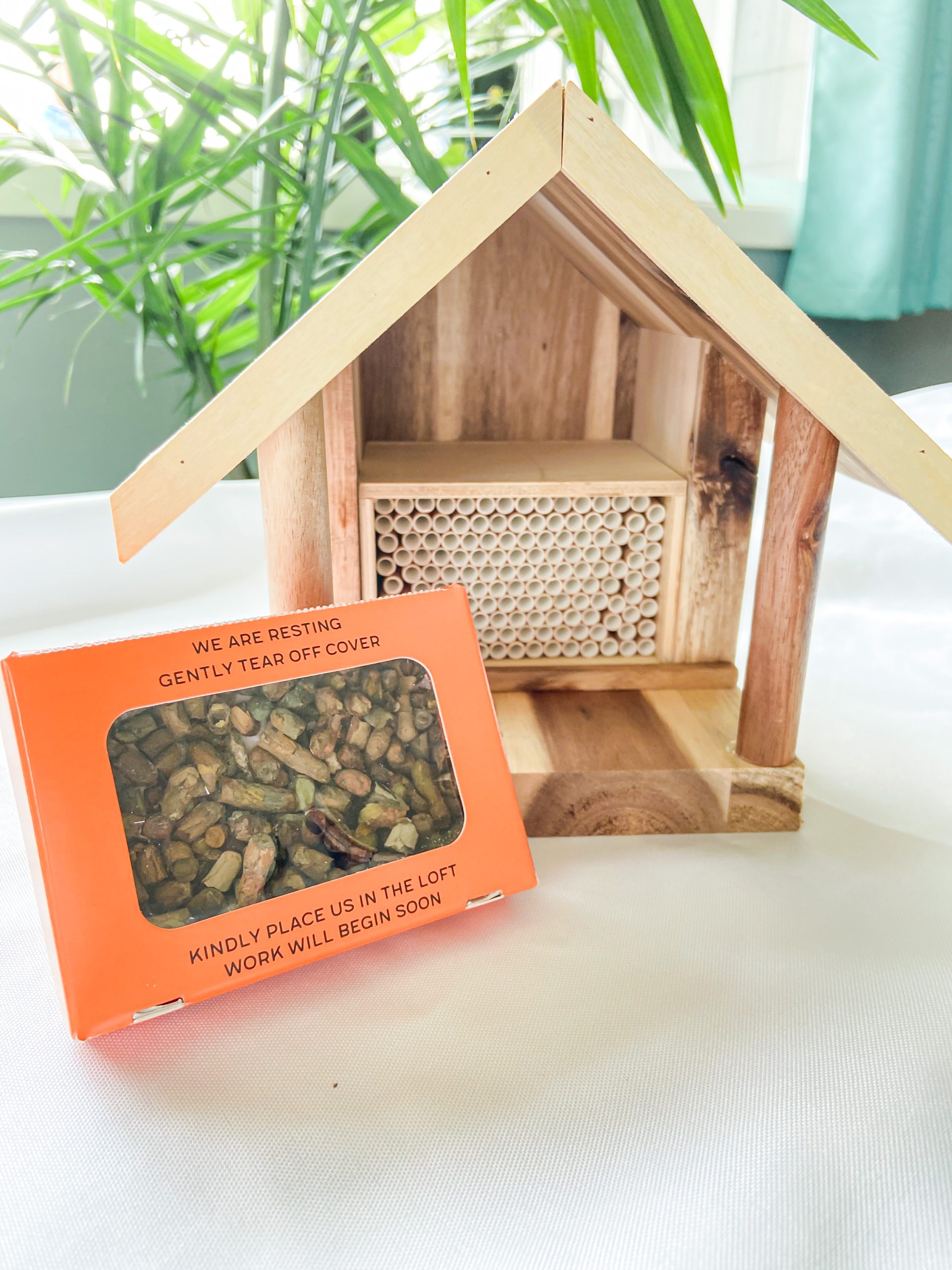Now that Canada’s main growing season is over, it is time to prepare your property for the winter. A lot more work goes into winterizing a garden than some might think, but putting in the hard work will ensure your systems and soil are protected from brazen winter weather!
There are a number of things you can do to prepare your garden for the winter. We will cover a few key steps in this guide, including how to properly winterize your leafcutter bee cocoons from Kind Bee Farms. Keep reading to learn more about how to get leaf cutter bees in Ontario, Alberta, BC, and across Canada for the 2026 growth season!
Bring in the Harvest!
If you have not already, finish collecting all your vegetables, fruits, and herbs that you toiled over the summer! Make sure to follow the harvesting rules according to your temperature zone so that everything is collected at the proper time.
Some vegetables can be kept in the garden throughout the winter (Ontario’s climate can support several winter crops), while others should be harvested before the snow falls.
Tender vegetables like zucchini, winter squash, and tomatoes should be collected before the first frost, while greens like kale and collards actually taste better after the first frost!
Prepare the Soil
Once your plants are safely harvested, it is time to prepare the soil! Proper preparation will help protect plant roots, control weed growth, improve drainage, and retain more nutrients to help your plants grow big and strong!
Clear out any crop debris or dead plants, and place them in your compost pile. Work the compost into your soil to infuse it with rich nutrients and improve microbial growth.
(Do not throw diseased plants on your compost pile. This can spread bacteria in the compost and back into your garden.)
If you have perennials or winter crops in your garden, placing a layer of mulch around their perimeter will help maintain proper insulation, such as regulated soil temperature and stunted weed growth!
Winterize Perennial Plants
If you have long-life-cycle plants on your property, prepare them to survive cold snaps and heavy snow. Some hardy, cyclical plants include:
- Berry bushes: Pruning raspberries, mulching the base of blueberry bushes, and covering your strawberry beds with mulch are all good practices to maintain the strength and hardiness of your berry bushes. Leafcutter bees love berries, so this helps with pollination, too!
- Perennials: Water your perennials before the snow comes, and cut back any perennials that are known for spreading diseases, like hostas and bee balm. Our kind bees love these plants, so keep them nice and healthy for your gardening partners!
- Rose bushes: Rose bushes should be mulched with compost or leaves and wrapped with mesh wire (particularly helpful in colder regions!)
Winterize Your Pollinators
If you have a Bee House and cocoons from Kind Bee Farms, make sure to properly store them so that the larvae can safely grow into full bees in time for the following summer!
Leave the box of cocoons in the Bee House, dismount it, and put it into storage in a cool, dry area. A garage, shed, or cold room in your house should do the trick!
Keep the house away from any water or heat sources to ensure your baby bees don’t grow too quickly, as they won’t survive in the winter weather. Check regularly for any winter weather issues like leaks or temperature fluctuations.
With proper storage, your bees will be ready to hatch and spread pollen throughout your garden in 2026!
Order Leaf Cutter Bees to Ontario, AB, BC, and More from Kind Bee Farms
You can accelerate the growth of your plants with leafcutter bees in 2026! At Kind Bee Farms, we think it is smart to plan ahead, which is why we are making our bees available for pre-order very soon. You can receive your bees at the perfect time for pollination!
Subscribe to our newsletter to learn more about our upcoming pre-order dates and visit our Blog to read all about leafcutter bees!

